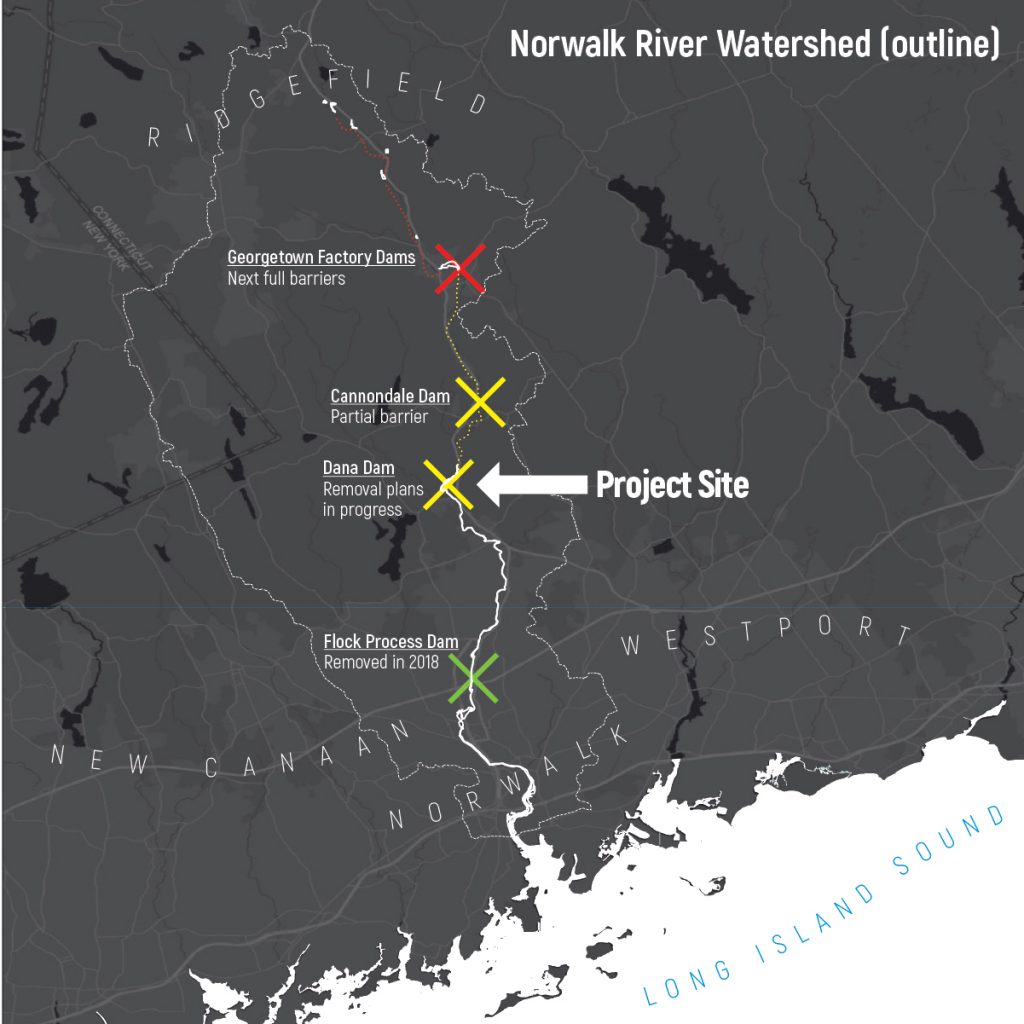
Also known as Strong Pond Dam, Dana Dam is one of the final barriers to migratory fish passage on the Norwalk River. Once removed, nearly 10 upstream miles will be reopened for fish passage, reconnecting a 14 mile stretch of free-flowing river with Long Island Sound. Fish will once again be able to swim upriver to their historic spawning grounds, and an integral part of Long Island Sound’s foodweb and ecosystem will be restored.
The project will also mitigate flood risks and eliminate safety hazards posed by the dam, while restoring 1,400 feet of river channel for river herring, eel, sea lamprey, brook trout and other popular sport fish, along with 1.5 acres of riparian buffer for birds, mammals, amphibians and other wildlife.

Data: Esri, HERE, Garmin, (c) OpenStreetMap contributors, CT DEEP, and the GIS user community.
Partners and collaborators are hard at work with us in making this vision of a free-flowing Norwalk River a reality. We have already raised nearly $2.7M from federal grants and private foundations for this project. That leaves us just a bit short of making this landmark project a reality, a gap we need your help to close. Want to join the effort or help support it to completion? Just reach out to us!
Following the removal of the Flock Process Dam (Norwalk) in 2018, Dana Dam at Merwin Meadows Park (Wilton) became the first barrier to fish migration on the Norwalk River. After its removal, the Factory Pond Dams in Georgetown will be the last remaining barriers before the entire length of the Norwalk River runs free!
A Note from the Field
The logistics of physically removing a dam is just one piece of the puzzle; making sure the resulting water levels and flow patterns will not pose a risk to upstream and downstream infrastructure is something we consider very carefully. We also want to ensure that the resulting conditions provide suitable habitat for the fish and wildlife that live in and around the river.
While Dana Dam has unique challenges given the history and location of the site, the tremendous ecological and recreational value of the Norwalk River means that the benefits of this project greatly outweigh the complexities.
Alex Krofta, ecological restoration project manager at Save the Sound

